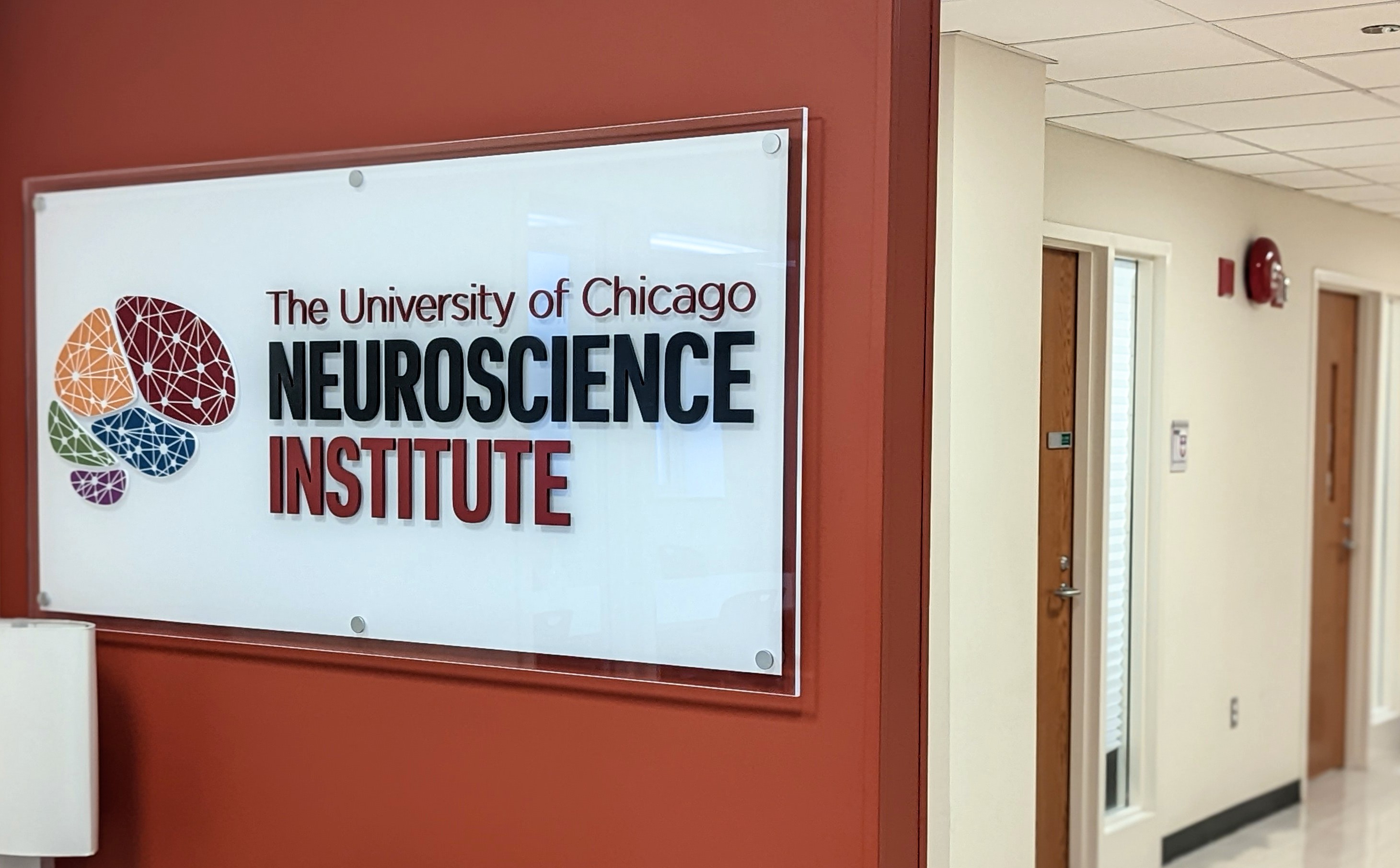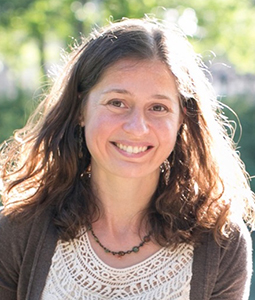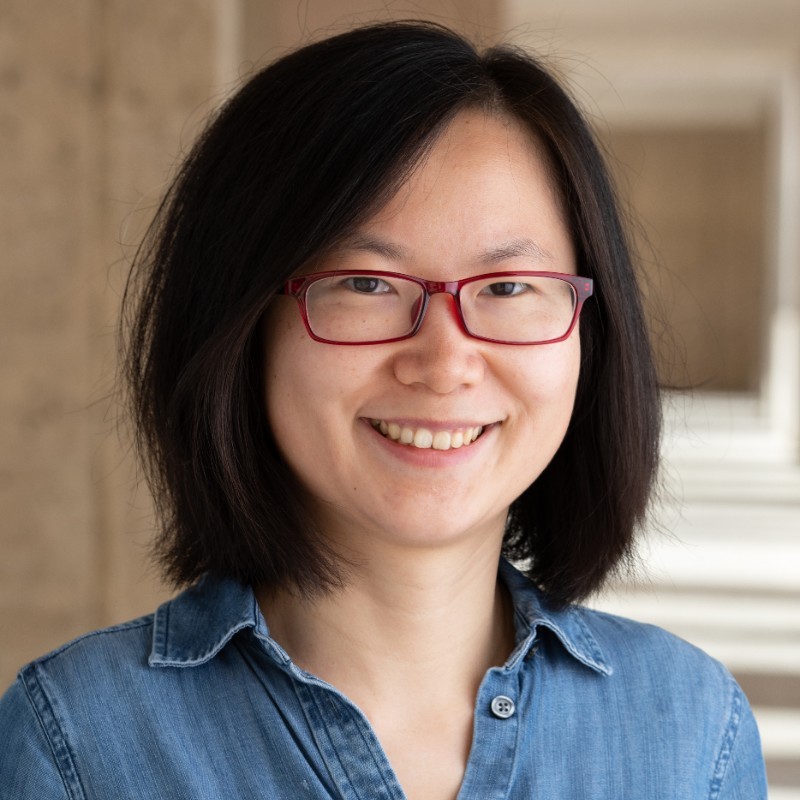Meet the new Neuroscience faculty members

The Neuroscience Institute is happy to welcome three new faculty members to the team. Carolyn Martineau, PhD, Stephanie Groman, PhD, and Zhuzhu Zhang, PhD joined the University of Chicago this Fall quarter.
Learn more about them:
 Carolyn Martineau, PhD
Carolyn Martineau, PhD
Neuroscience Instructional Faculty
Carolyn Martineau has a BS in Chemical Engineering from Tufts University and a PhD in Cell and Developmental Biology from Harvard Medical School. Between those stints in Boston, she spent a year working at the WEHI, playing ultimate, and rock climbing in and around Melbourne, Australia and amuses her twin 9-year-old daughters with spot-on imitations of Bluey.
She is fascinated by the impact of experience on perception and cognition and is excited to apply lessons from postdoctoral work at Northwestern and the University of Chicago and over a decade teaching at DePaul University to develop new courses for the BCSD and Neuroscience programs.
She's run 14 marathons across six states and four countries and enjoys exploring new destinations through running and making annual National Park trips with her family of hikers. She balances all that movement with occasional sketching, reading, crosswording, and a family tradition of Ice Cream Sundays.
 Stephanie Groman, PhD
Stephanie Groman, PhD
Assistant Professor, Department of Anesthesia and Critical Care
Dr. Groman’s research program aims to understand the neurobiological and developmental mechanisms of decision-making to identify biological targets that could be manipulated to prevent and treat mental illness. Dr. Groman received her Ph.D. in 2013 from the Department of Psychology at the University of California, Los Angeles, where she trained under Dr. J. David Jentsch and Dr. Edythe London. Her work integrated neuroimaging, behavioral, pharmacological, and ex vivo approaches to provide the first evidence that chronic exposure to methamphetamine resulted in the neural and behavioral alterations that had been previously observed in substance-dependent individuals.
Her work was recognized by several awards, including a predoctoral NIH NRSA fellowship, the UCLA Brain Research Institute Award, and the Joseph A. Gengerelli Distinguished Dissertation Award. She accepted a post-doctoral position in the Department of Psychiatry at Yale University, where she trained under Dr. Jane Taylor investigating the biobehavioral mechanisms of addiction.
In 2021, Dr. Groman became an Assistant Professor in the Department of Neuroscience at the University of Minnesota, and in 2023 relocated her laboratory to the Department of Anesthesia and Critical Care at the University of Chicago. Her research integrates computational approaches with neuroimaging, proteomics, viral manipulations, and drug self-administration in rodents to provide a translational platform for understanding the biological and neurodevelopmental mechanisms of addiction vulnerability. Ongoing projects in her lab include topics such as 1) investigating the genomic and proteomic mechanisms that mediate the progression of addiction, 2) elucidating the neurodevelopmental mechanisms that impact addiction-like behaviors, 3) understanding how the brain guides decision-making functions at the protein and circuit level in addicted and non-addicted states, and 4) determining the social and genetic components underlying addiction susceptibility.
 Zhuzhu Zhang, PhD
Zhuzhu Zhang, PhD
Assistant Professor, Department of Human Genetics
Dr. Zhuzhu Zhang's research focuses on understanding the diversity and dynamics of the epigenome in the mammalian brain. Using an interdisciplinary approach that combines genomics, neuroscience, and bioinformatics, her lab investigates how the epigenome—unique to each cell type—modulates gene expression in neural circuits and mediates cellular responses in both physiological and pathological conditions.
She is particularly interested in unraveling the functional roles of the epigenome in brain development and in psychiatric disorders such as addiction. To tackle these complex questions, Zhuzhu has developed innovative methods that integrate single-cell genomics with neural circuit analysis.
Zhuzhu completed her Ph.D. in Bioinformatics and Computational Biology at the University of North Carolina at Chapel Hill, working with Dr. Terry Furey on chromatin and gene regulation in stem cells and cancer. She then conducted her postdoctoral research at the Salk Institute for Biological Sciences with Drs. Joe Ecker and Ed Callaway, where she led a brain-wide investigation into the epigenomic characteristics of long-distance neural projections in mice as part of the NIH's BRAIN Initiative Cell Census Network (BICCN). Outside the lab, Zhuzhu enjoys hiking, camping, and culinary experiments and has a particular fondness for dessert.
Please join us in welcoming Drs. Martineau, Groman, and Zhang to the team!
